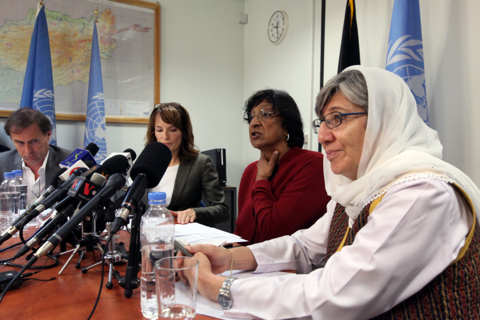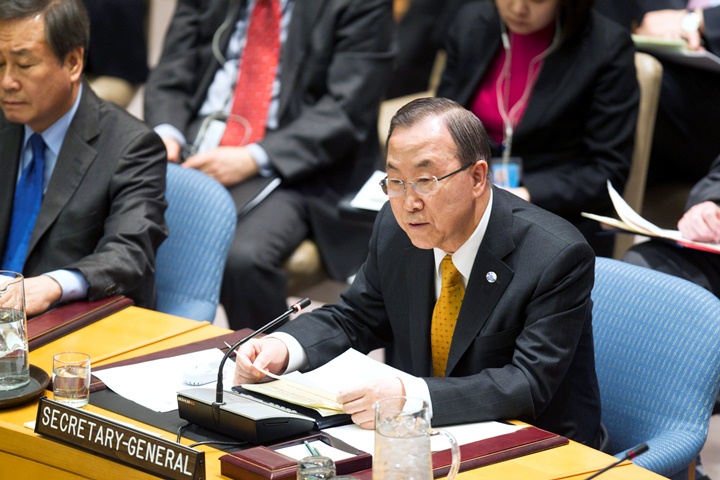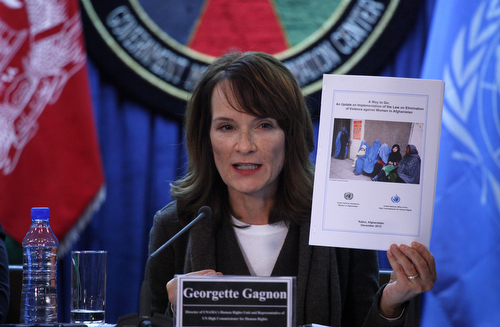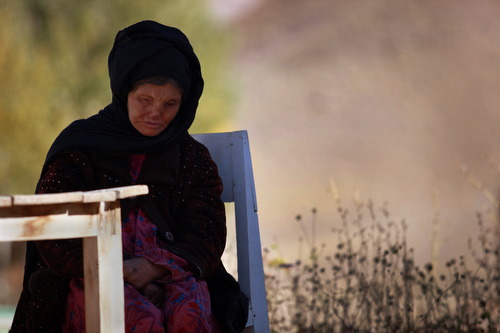KABUL - The United Nations is observing Human Rights Day around the world today by recognizing human rights achievements made over the past two decades since the adoption of the landmark Vienna Declaration and Programme of Action– regarded as one of the most significant human rights documents of the past quarter century and which marked the beginning of a renewed effort in the protection and promotion of human rights.
“Twenty years ago, a historic document was adopted in Vienna. It crystallized the principle that human rights are universal, and committed States to the promotion and protection of all human rights for all people, regardless of their political, economic and cultural systems. Among many other significant and ground-breaking achievements, the Vienna Declaration led to the creation of my Office – the Office of the High Commissioner for Human Rights (OHCHR),” the UN High Commissioner for Human Rights, Navi Pillay, said in a statement.
“Since then, there have been many advances – indeed more than people perhaps realize,” Ms. Pillay added. “The fundamentals for protecting and promoting human rights are largely in place: these include a strong and growing body of international human rights law and standards, as well as institutions to interpret the laws, monitor compliance and apply them to new and emerging human rights issues.”
In December 1993, acting on a recommendation from delegates to the World Conference on Human Rights held in Vienna earlier that year, the UN General Assembly created the mandate of the High Commissioner for the promotion and protection of all human rights.
In 1950, the Assembly had proclaimed 10 December as Human Rights Day to bring to the attention ‘of the peoples of the world’ the Universal Declaration of Human Rights as the common standard of achievement for all peoples and all nations.
The theme of this year’s Day is ’20 Years: working for your rights,’ although with the emphasis on the future and identifying the challenges that lie ahead.
“In OHCHR’s two decades of existence, five dedicated High Commissioners have spearheaded the work of the United Nations to further human rights globally. Through a wide range of norms and mechanisms, OHCHR advocates for victims, presses States to live up to their obligations, supports human rights experts and bodies, and – through presences in 61 countries – helps States to develop their human rights capacity,” said Secretary-General Ban Ki-moon in his message for the Day.
He added, “On Human Rights Day, I call on States to fulfil the promises they made at the Vienna Conference. I reiterate the commitment of the UN Secretariat, funds and programmes to vigilance and courage in the face of human rights violations.”
Human rights form an important part of the work carried out by the UN Assistance Mission in Afghanistan (UNAMA). Under its mandate from the Security Council, the Mission is expected to "monitor the situation of civilians, to coordinate efforts to ensure their protection, to promote accountability, and to assist in the full implementation of the fundamental freedoms and human rights provisions of the Afghan Constitution and international treaties to which Afghanistan is a State party, in particular those regarding the full enjoyment by women of their human rights."
To this end, UNAMA’s Human Rights Unit monitors, analyzes and reports on the human rights situation in Afghanistan and engages in protection, advocacy and capacity building activities. Through regular public updates and thematic reports, the Unit provides stakeholders, including the Government, the Afghan people, the international community, civil society and media, with a substantive analysis of the human rights situation. It also raises issues of concern and proposes and advocates for measures to improve promotion and protection of human rights throughout Afghanistan.
Pursuing an overall strategy of “embedding human rights in Afghanistan” or “human rights everywhere all the time for everyone” in support of all Afghan people, UNAMA’s Human Rights Unit works in four priority areas: protection of civilians, violence against women, peace and reconciliation and detention.
Earlier this week, UNAMA released its latest report – produced with OHCHR – on the law on the Elimination of Violence against Women (EVAW law). The report found that Afghan authorities registered more reports of violence against women under the EVAW law over the past year, but prosecutions and convictions under the law remained low, with most cases settled by mediation.
Afghanistan’s human rights situation drew a visit by the High Commissioner in September this year. While in the capital, Kabul, she met with senior Afghan officials, and representatives from civil society and the international community, in order to review progress and challenges in the area of human rights.
At the end of her two-day visit, Ms. Pillay said that the Afghan Government should make extra effort to ensure that the country’s human rights gains of the past are not sacrificed to political expediency in the months leading up to the country’s Presidential and Provincial Council elections in April 2014.
“My concern that the momentum of improvement in human rights may have not only peaked, but is in reality waning, has not been allayed,” the High Commissioner said.
“Afghanistan is clearly at a critical juncture with the ongoing political, security and economic transition concluding in 2014 – all of which will have an impact on the human rights of its citizens,” she added. “There have been some distinct human rights achievements during the past 12 years, but they are fragile, and many Afghans are expressing fears that the overall human rights situation is deteriorating on several fronts.”
In her message for Human Rights Day today, Ms. Pillay also noted that the 20 years since the World Conference on Human Rights in Vienna had seen many setbacks and a number of tragic failures to prevent atrocities and safeguard human rights.
“In several instances where deplorable, large-scale violations of international human rights law were occurring, the international community was too slow, too divided, too short-sighted – or just plain inadequate in its response to the warnings of human rights defenders and the cries of victims,” Ms. Pillay said. “The Vienna Declaration should be viewed as a blueprint for a magnificent construction that is still only half built.”
The UN human rights chief added that, at the international level, a huge amount of work remains to be done to transform human rights from abstract promises to genuine improvement in the daily lives of all people, especially those who are currently marginalized or excluded.
“The UN Human Rights Office will continue to work with all our partners to try to prevent human rights breaches from occurring. We will continue to be vocal about human rights violations. We will continue to ask States to do their part – the biggest part by far – to ensure that the tragic mistakes of the past are not repeated and that the human rights of all are protected and promoted,” Ms. Pillay said. “We can – and we must – do better.”
According to OHCHR, some of the top human rights achievements over the past two decades include economic, social, cultural, civil, and political rights and the right to development are recognized as universal, indivisible, and mutually reinforcing rights of all human beings, without distinction; additional explicit protections in international law now exist covering, among others, children, women, victims of torture, persons with disabilities, and regional institutions; women’s rights are now acknowledged as fundamental human rights; and States and the United Nations recognize the pivotal role of civil society in the advancement of human rights.
In addition, there is heightened awareness and growing demand by people worldwide for greater transparency and accountability from government and for the right to participate fully in public life, and national human rights institutions have become more independent and authoritative and have a powerful influence on governance. Over a third of all countries have established one or more such institutions.








